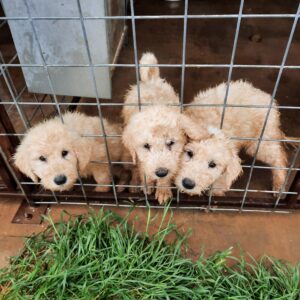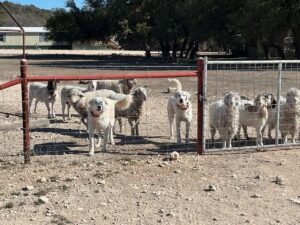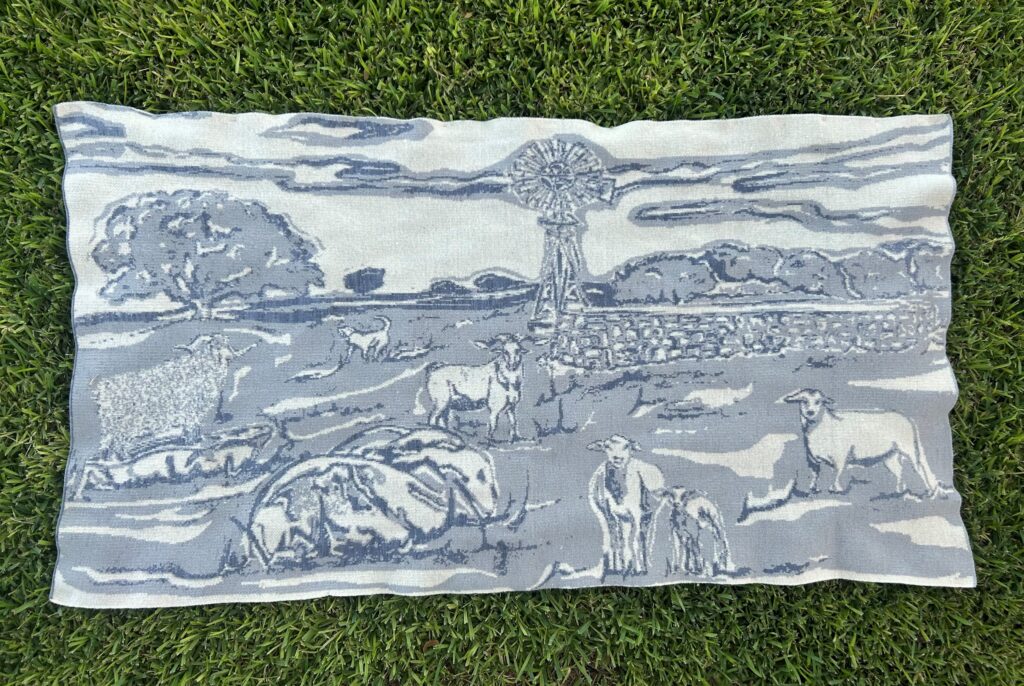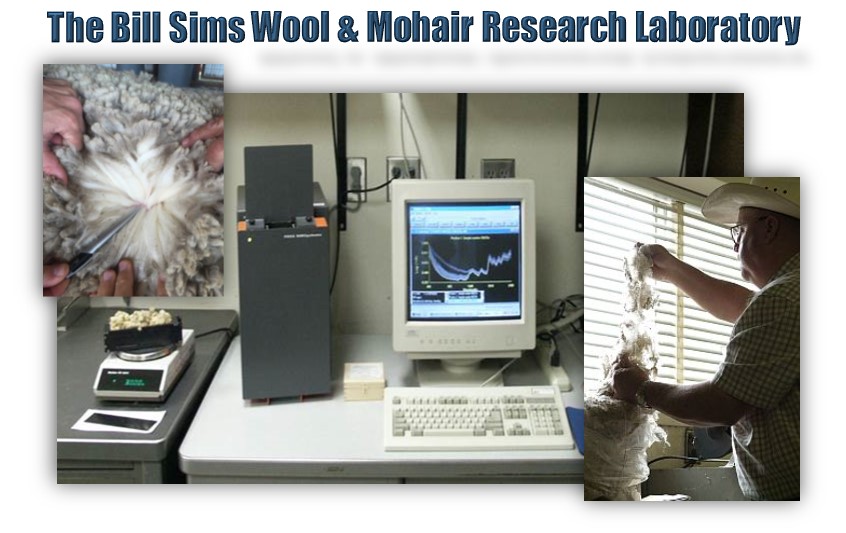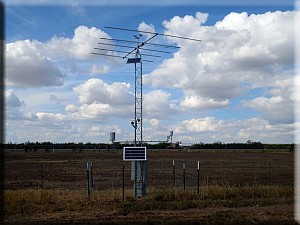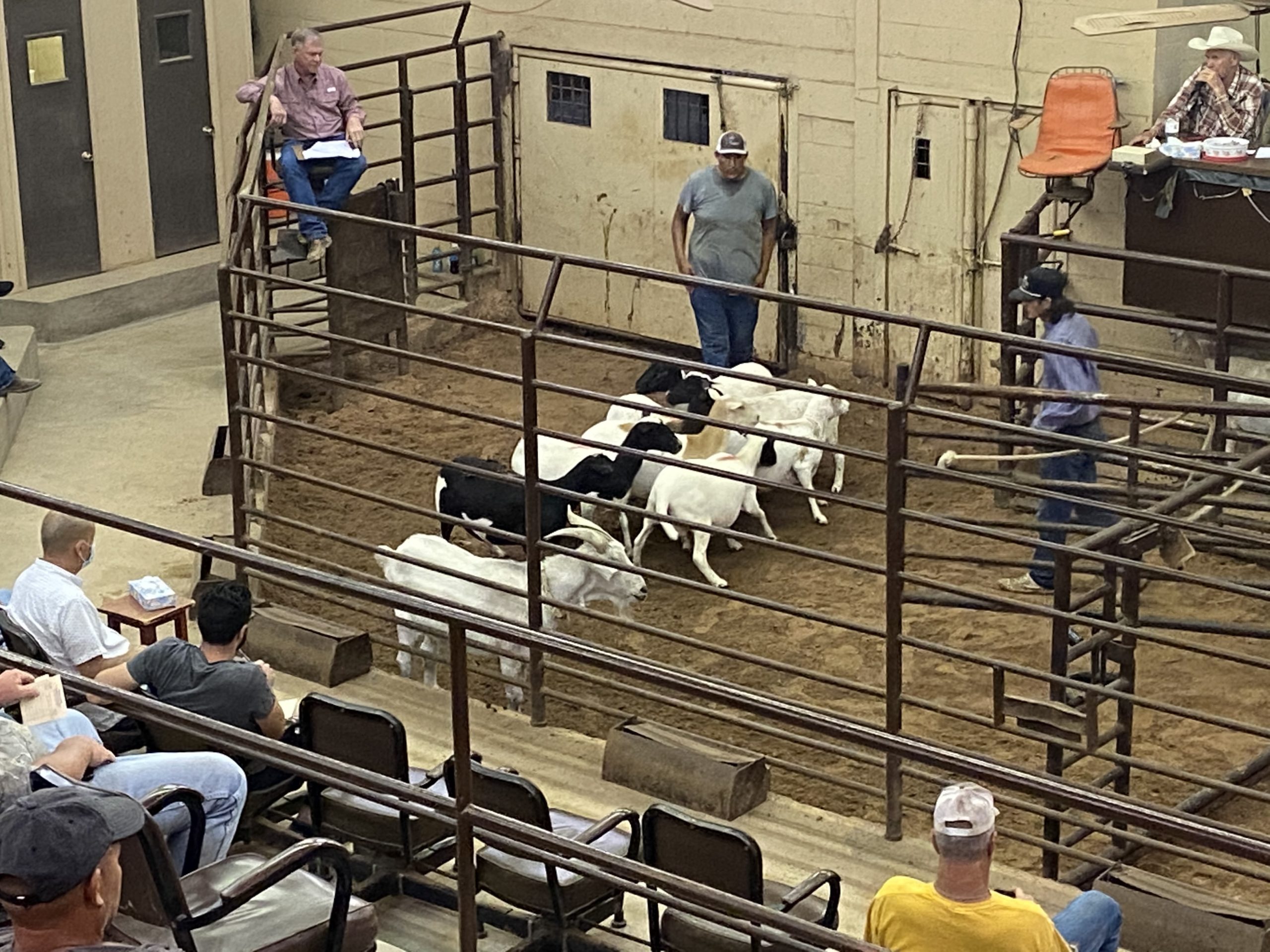Some rain has finally been falling around San Angelo bringing some colder temperatures too. Make sure that your LGDs are in adequate body condition to handle the colder weather and can bed down with livestock to stay warm. All LGDs, even shorthaired breeds, have double hair coats to protect them from the cold but a layer of fat is helpful for extra insulation and metabolic needs. We have moved over to feeding a high energy 24/20 kibble this winter and the dogs seem to be doing much better across all the ranches. I would recommend a different formula for the warmer months however as I think this kibble may spoil quickly in the heat.
The Texas LGD Association will be having its first field day on Saturday June 10 in Caldwell at the Burleson County Fairgrounds. Check out their website and Facebook page for more information.
AgriLife Livestock Guardian Dog Program: Events and Update
Save the Date – Our spring LGD Field Day will be held in Sonora at the Texas A&M AgriLife Sonora Station on April 14 from 8 a.m.-4 p.m. The field day will include workshops, producer panel and ranch tours. For more information check out our Facebook page. To register for the event, contact the Sutton County AgriLife Extension office at 325-387-3101 or email annette.estrada@ag.tamu.edu
Our next online seminar will be held May 18 at 3 p.m. on Zoom. Check out our Facebook page for more information as the event gets closer. The topic will be “The Great Pyrenees Breed” presented by Carrie Parks, chair of the Judges Education Committee at the Great Pyrenees Club of America (GPCA). Carrie is also an AKC judge, on the board of directors of the GPCA and has had Great Pyrenees, both working and show, since 1959. The online seminar will be free as always. You can sign up on our events page.
The Texas LGD Association will be hosting a field day in Caldwell TX at the Burleson County Fairgrounds on June 10th from 8am to 4pm. Event will have workshops, a breeder panel and association meeting. Breeders of LGDs will be on site. Contact Bill Costanzo at bill.costanzo@ag.tamu.edu for more information.
Pasture vs. Stall Whelping/Bonding Pens
Some producers prefer to allow their dogs to whelp in the pasture and keep their pups with them until weaning or longer. While other producers prefer to use bonding pens and have their female LGDs whelp in a barn or stall. Which system is better?
Pasture whelping and bonding allows nature to take its course and select the healthiest pups to survive. Its less work for the producer as well since they do not have to manage the puppies or livestock in pens. Pasture whelping also keeps the female in the field should a predator try to prey on livestock. Pasture whelping and bonding may allow the mother to teach her pups more skills as they mature. While pasture whelped and bonded dogs are often successful, I do not believe it is the best way to whelp or bond pups.
The main problem I see with pasture raising LGDs is the possible loss of pups from disease, weather, predators, and malnutrition. A good female LGD’s ability to guard her charges will be diminished because she will need to feed and protect her pups. Poor or young mothers may not be as attentive to pups leading to death loss. Pasture raised pups may also not be as socialized to humans as they need to be.
Stall whelping gives a producer the ability to constantly monitor the health of the pups and mother. It also gives them the ability to keep livestock near the pups which should create a stronger bond since the puppies are hearing and seeing livestock shortly after birth. A puppy’s brain develops rapidly from 2 weeks of age to 14 weeks of age. It is forming many different associations with the world around it during this time. The process of the puppy forming bonds starts as early as 5 weeks of age and continues until approximately 14 weeks of age. This is a critical time and if the pups are not near livestock during these weeks, they will not form as strong of a bond to livestock as they should. Weak bonds to livestock can be a cause of roaming later in the dog’s life and dogs that are more of a property guardian than a livestock guardian. Poorly bonded dogs may also have a higher death rate because they leave their charges and get hit by cars, trapped, poisoned or shot.
So, which system is better? While there is no research that I know of on this topic, I would say that barn whelping and bonding pens are a better system to use. You can better manage the pup’s health, training, and the bonding process with this system. The more puppies that survive and form proper bonds, the more lambs, or kids you should have to sell. Extra well-bonded puppies are often easy to sell too!
Bonding Project Update
Round Five Pups
We will be starting round five of the bonding projects in early March. There will be six pups for the next round. Three pups will be Great
Pyrenees and the other three will be Komondor. Producers, if you have over 250 ewes/nannies and are interested in participating as a cooperating producer, please reach out to Dr. Redden at reid.redden@ag.tamu.edu. This round of pups will be available around November of this year.
Round Four Pups

Carol and Cindy heading back to their charges after tracking collar changes. (Texas A&M AgriLife photo courtesy Costanzo 2023)
Ewes are lambing on several of the cooperating producer ranches in this round. Producers are happy to see more lambs this year and are hopeful that the dogs continue to keep predators at bay until the lambs are sold. Carol and Cindy are doing well together. Cindy will chase ewes sometimes, but Carol does not according to the producer. Cindy was producer bonded and Carol was an AgriLife bonded pup. Even though they are sisters and bonded apart, both dogs get along well. We have seen comparable results in this round across all locations except Eagle Pass. The producer bonded pups are more socialized and easier to catch than the two AgriLife pups. They are at separate locations with different handlers which may be the issue for this.
The GSat solar GPS trackers in Rocksprings are working better now that the software has been updated, and we moved the upload time to 2
hours. The trackers are staying fully charged except on overcast days. They are not dying but we do get a notification or two on those days. We will keep you posted on how these new units are working out.
Round Four and a Half Pups
Colt and Ruger are still doing well and will be moving to a larger trap this month. The pups have found a potential ranch to call home in the
Menard area when they turn 10 months old in May. The pups will be monitored with GPS trackers once they are placed on a cooperating producers ranch. We will track Colt and Ruger until they turn 18 months of age.
Adult LGD Updates
Doc and Thelma were moved back to the ranch in Menard last month after their ewes had lambed out at the Center. Waylon is still at the Center barking and carrying on as always with his Rambouillet’s. Even though he just turned 3, you would never know it. He is full of as much energy as he was as a pup in the bonding project. Luckily, he has outgrown his need to get into trouble which always required a vet visit or two.
Queenie was rehomed last month and seems to be doing well with a small producer in the Wall area. She is with goats on small acreage getting the care the old girl needs.
In closing
If you enjoyed this monthly LGD blog, please don’t forget to subscribe to it with this link The Guardian Way | Texas A&M AgriLife Research and Extension Center at San Angelo.
To provide feedback on this article or request topics for future articles, please contact me at bill.costanzo@ag.tamu.edu or 325-657-7311.
The Texas A&M AgriLife Livestock Guardian Dog Program is a cooperative effort by Texas A&M AgriLife Research and the Texas Sheep and Goat Predator Management Board. Make sure to follow us on our social media sites and share them with your friends and family!
Facebook: https://www.facebook.com/TAMUlivestockguarddog/
Instagram: @tamulivestockguarddog
YouTube: https://www.youtube.com/channel/UCF7YbP6bNDV7___6H8mifBA
Do not forget to check out the Texas LGD Association on online! Follow the organization at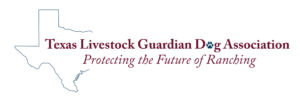 https://www.facebook.com/TexasLGDAssociation or check out their website!
https://www.facebook.com/TexasLGDAssociation or check out their website!

